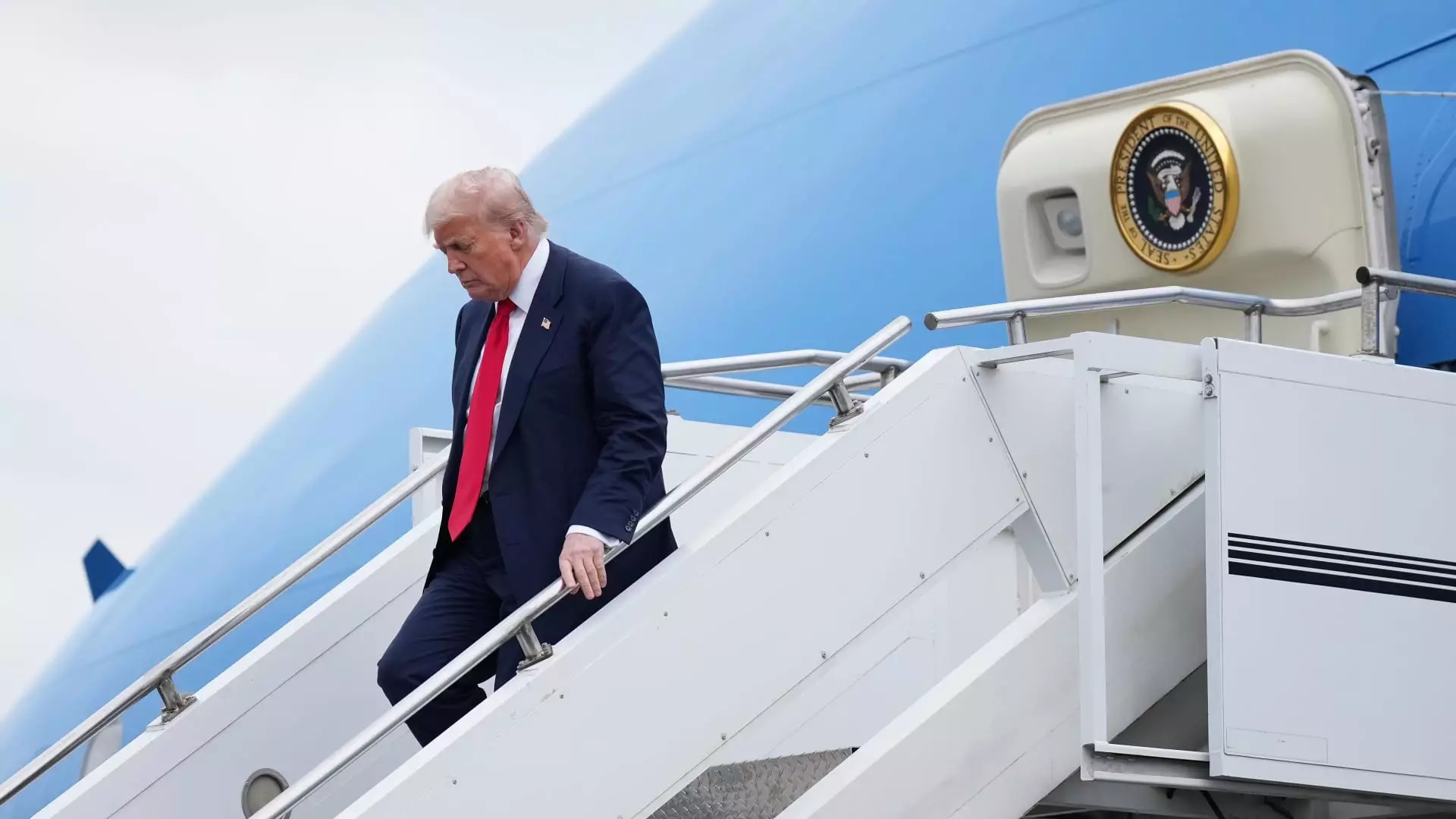The upcoming meeting between European Commission President Ursula von der Leyen and U.S. President Donald Trump is more than just a diplomatic gesture; it is a pivotal moment that could redefine the future of global trade. While both sides publicly frame this as an effort to strengthen economic ties, the underlying stakes reveal a fragile, precarious balance that could tip toward a damaging trade confrontation. In a world increasingly threatened by economic nationalism, this negotiation exposes whether the West can unite or continue to fracture under the weight of unilateral interests and protectionist impulses.
Given the current political climate, neither the EU nor the U.S. seems genuinely committed to cooperation. Trump’s threat of a 30% tariff on EU imports, and the EU’s readiness to retaliate, highlight a dangerous game of brinkmanship. These tariffs are not mere economic tools—they are instruments of political leverage, aimed at extracting concessions amidst tariffs’ chaos. The EU’s proposed countermeasures reveal a willingness to fight fire with fire, risking a full-blown trade war that could slow global momentum during a critical time of economic recovery post-pandemic. Instead of fostering mutual growth, such policies threaten to entrench divisions, escalate tensions, and set a troubling precedent for future trade negotiations worldwide.
The Illusion of a Deal and the Ill-Considered Risks
The chatter around a potential compromise—possibly a baseline tariff rate of around 15%—seems optimistic but ignores the deep-rooted divergences simmering beneath the surface. For all the talk of avoiding catastrophe, the likelihood of a meaningful agreement remains clouded by underlying distrust and strategic rivalry. The idea that a modest tariff might be the best possible outcome is a troubling reflection of the current state of transatlantic diplomacy, where half-measures threaten to undermine years of cooperation.
Moreover, given Trump’s unpredictable approach and the EU’s internal complexities, any deal risk being a superficial fix rather than a durable solution. The recent U.S.-Japan agreement, with a 15% baseline, may appear to set a precedent; however, it also exposes the superficiality of these deals—constructed more as strategic showpieces than lasting frameworks. If the EU concedes to a similar or higher tariff, it risks sacrificing long-term economic stability for short-term political appeasement. This approach mirrors the broader trend of global powers prioritizing immediate gains over sustainable, comprehensive agreements that could serve as foundations for future cooperation.
The Consequences of Putting Economics Before Diplomacy
The danger of this diplomatic face-off is that it diminishes the EU’s and U.S.’s capacity to act as responsible global leaders. By engaging in tit-for-tat tariffs, both parties reinforce economic nationalism at a time when multilateral cooperation should be at the forefront. Instead of focusing on shared challenges like climate change, technological innovation, or geopolitical stability, the focus shifts inward, risking a damaging spiral of retaliation.
The fact that Trump’s visit also includes informal U.S.-U.K. meetings underscores the complex web of transatlantic alliances. The Trump administration’s trade deal with the U.K., predicated on a 10% tariff baseline, signals a different approach rooted in bilateral advantage rather than multilateral consensus. This discrepancy complicates efforts to craft a unified transatlantic stance, creating fragmentation that could weaken the West’s negotiating position overall.
At stake is more than immediate economic gains; it is the integrity of the rules-based international order. If the EU capitulates to U.S. demands with a bland, compromised agreement, it risks setting a precedent in which economic power is wielded as a weapon rather than a tool for constructive engagement. This strategy ultimately undermines global stability and fosters an environment where protectionism and short-term political considerations take precedence over long-lasting peace and prosperity. In a world where the economic future depends on collaboration, it is imperative to scrutinize whether these negotiations are truly about mutual benefits or merely an extension of strategic posturing that could backfire spectacularly.

Leave a Reply